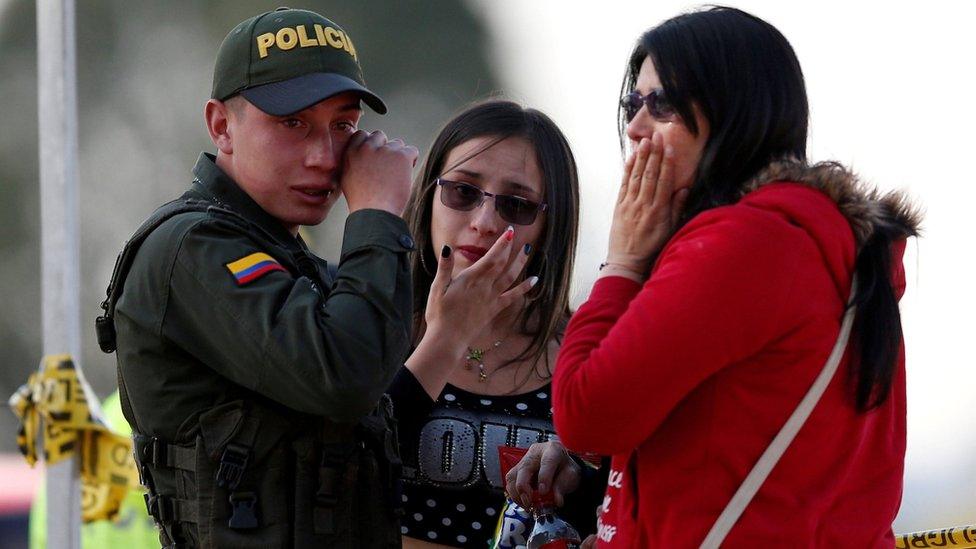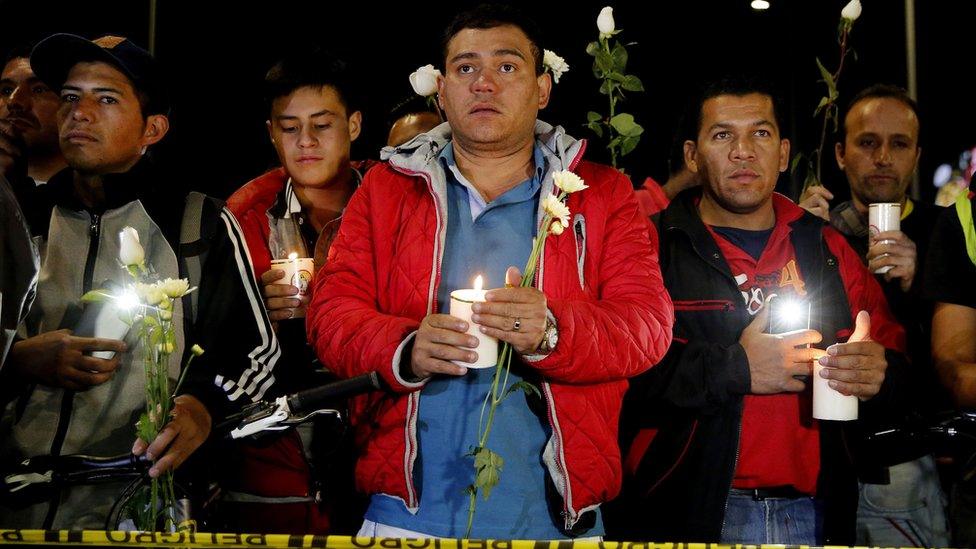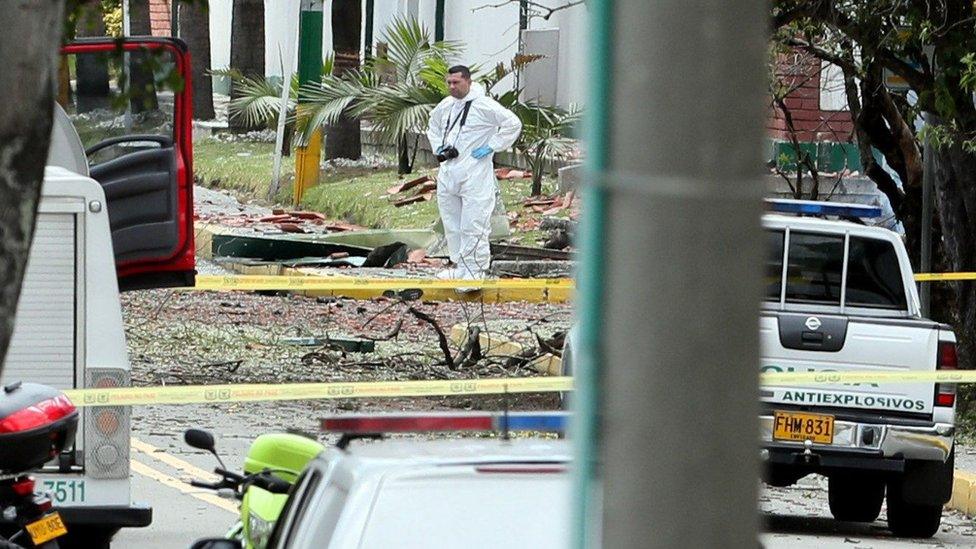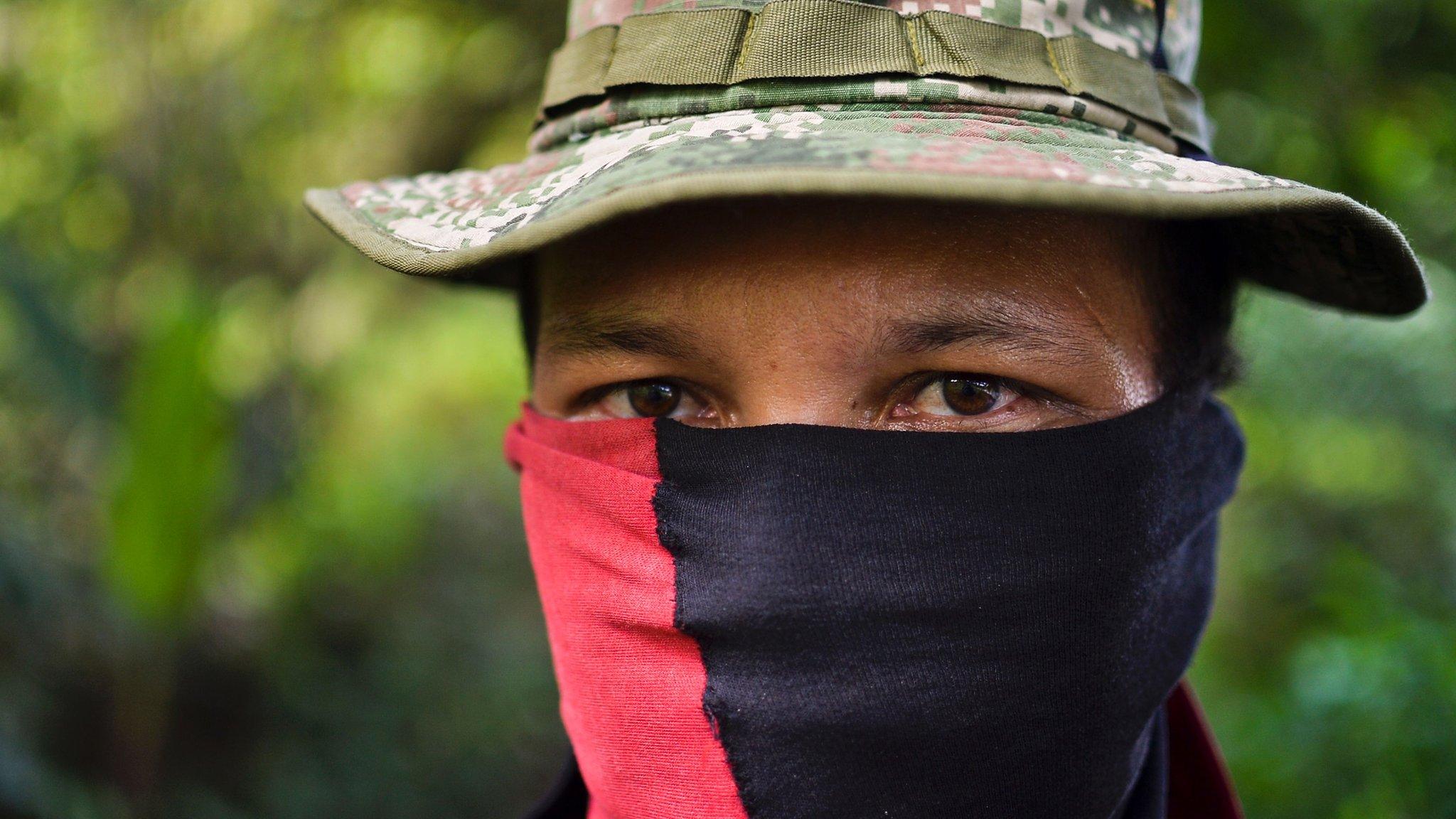Bogotá car bomb: Colombia blames ELN rebels for deadly explosion
- Published

The explosion outside a police academy shocked the Colombian capital
Colombia has blamed the left-wing National Liberation Army (ELN) rebel group for a car bomb attack that killed 21 people in the capital, Bogotá.
Dozens more were injured in Thursday's blast after an explosives-laden vehicle broke into the grounds of a police academy before it detonated.
The driver, who was also killed, has been identified as a 57-year-old man.
President Ivan Duque put peace talks with the ELN on hold when he took power in 2018.
Any restart to the negotiations is unlikely following the attack, the deadliest in the country in many years, correspondents say.
What has the government said?
The driver, named earlier as José Aldemar Rojas Rodríguez, was a long-time ELN member and the group's top explosives expert, Defence Minister Guillermo Botero said.
The suspect, known by his war alias "El Mocho" or "Kiko", had lost his right hand in an accident with an explosive and was based in the northern department of Arauca, from where he frequently crossed into Venezuela.
"This was an operation that has been planned for the past 10 months," Mr Botero said, adding that the guerrillas were the "intellectual authors" behind the driver's attack.
A second man who had "participated" in the carrying out of the attack was arrested in Bogotá, Attorney General Néstor Humberto Martínez said.

A vigil was held in Bogotá on Thursday to honour the victims
President Duque, who visited the site of the explosion on Thursday, described the attack as a "crazy terrorist act".
"We won't rest until we capture and bring to justice the terrorists involved," he said. "Colombians have never yielded to terrorism, we have always defeated it. This will not be an exception."
Colombia's High Commissioner for Peace Miguel Ceballos said there would be "no space for dialogue with the ELN until they hand over all the kidnapped people and completely renounce their criminal acts."
What do we know about the explosion?
The grey Nissan Patrol entered the compound of the General Santander police academy in the south of Bogotá where a promotion ceremony for cadets was being held.
When the car was stopped by guards at a checkpoint, the driver accelerated and hit a wall, at which point the vehicle exploded.
The vehicle was carrying 80kg (176lb) of the powerful explosive pentolite, which has been used in the past by Colombia's rebel guerrilla groups.
The blast at 09:30 local time (14:30 GMT) shattered windows of nearby buildings.

The explosion happened outside a school for police cadets
Twenty of the victims were police cadets aged between 17 and 22, Mr Botero said.
At least 68 people were injured but the majority of those have since been discharged from hospital.
Who are the ELN rebels?

The group has been fighting the Colombian state for more than five decades
The 2,000-strong guerrilla group was founded in 1964 to fight against Colombia's unequal distribution of land and riches, inspired by the Cuban revolution of 1959
Over the decades, the group has attacked large landholders and multinational companies, and repeatedly blown up oil pipelines
To finance itself it has resorted to extortion, kidnappings and drug trafficking
It has been strongest in rural areas
What's the current situation in Colombia?
Car bombs were not uncommon during the decades-long conflict between the Colombian government and left-wing rebels of the Revolutionary Armed Forces of Colombia (Farc).
But an explosion of a car bomb of this size is something that has not happened in a long time in Bogotá and it took the city by surprise, BBC Mundo Colombia correspondent Boris Miranda reports.
Colombia has significantly reduced bomb attacks and murders in recent years but the attack shows that it is a continuing fear for citizens, our correspondent adds.
The Farc signed a peace agreement with the government in November 2016 and the group has since become a political party of the same name.
The party's leader, Pastor Alape, condemned the attack., external, calling it a "provocation against the political way out of the conflict".
Peace talks between the smaller ELN and the previous government of President Juan Manuel Santos stalled, and President Duque, who takes a more hardline approach to the group, has not resumed them.
- Published8 February 2017
